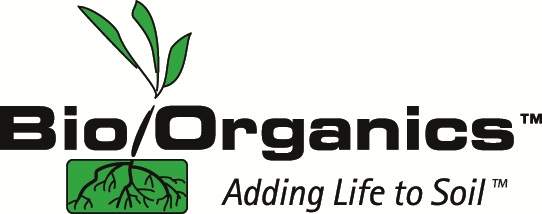I wonder what ever happened to the idea that people should be considerate of those who live downstream. As in, "It's not nice to empty your chamber pot into the river - the people downstream swim in it, too."
Is it ignorance or apathy - "I don't know and I don't care" - that leads us to continue gradually ruining our environment with fertilizer runoff and run-through? (I know, I know, the very use of the word "environment" labels me as one of those enviro-wackos to some fertilizer dealers, but so be it.)
We're all currently distressed and angry at the oil spill in the Gulf. The powerful TV images of struggling pelicans and dying turtles trigger an emotional response for most people, but yet we hardly register a peep about the "dead zone" off the mouth of the Mississippi River. This huge lifeless area in the Gulf (hundreds of square miles) is mostly caused by runoff of petrofertilizers from midwest farms and urban lawns.
I suppose the lack of alarm is because it's a gradual and non-photogenic problem. An oil-soaked bird is inherently more dramatic than underwater shots of emptiness. But which problem is more devastating or long-lasting?
Come to think of it, isn't that the explanation? It's the frog in a slowly heating pot of water concept. Sudden disasters are the lead story on the evening news, while equally bad events that occur gradually get little attention. It's human nature - we're just not as motivated to fix slow seeps as we are spraying pipes.
And if the problem happens way downstream from us or mostly after our life span, it's even harder to get excited. There may no longer be any fish in a large area of the Gulf, but how many Nebraska farmers or Minneapolis gardeners feel personally responsible?
If some Illinois city's water well crosses a toxic-level threshold 20 or 50 years from now, that's obviously bad, but who today is making any mental link between that problem and fertilizing this corn yesterday or that lawn tomorrow? And anyway, with so many, many, acres of crops and turf grass, how can any one person's little bit of added runoff matter?
The director of Florida State University's Coastal and Marine Laboratory, Felicia Coleman, was quoted recently, "There's a tremendous amount of outrage with the oil spill, and rightfully so. But where's the outrage at the thousands and millions of little cuts we've made on a daily basis?"
Whether it's a truckload of synthetic petrofertilizer heading for a farm in Kansas, or a pretty green truck spraying lawns in Chicago's suburbs, or a backyard gardener in Memphis mixing up "miraculous plant food" to drench on tomatoes and roses - it could be said that they are all little BP's, only operating on a much smaller and more gradual time frame. Harder to notice.
I really don't expect that everyone's established fertilizing habits will change any time soon, but I will continue to promote the idea that everyone who grows plants should think about the unintended downstream effects of what they apply to their soil. There are cleaner alternative methods, especially for home lawns and gardens, smaller farms, and nurseries.
If dry organic fertilizers are not suitable or available, then use slow-release coated forms of petrofertilizers instead of fast-dissolving granules or liquids. Try building up plant-nourishing microbial and earthworm populations in the soil. Add some mycorrhizal spores to nursery potting soils and cut back on the fertilizer requirements. Build up the natural fertility of soil with nitrogen-fixing cover crops instead of monocropping year after year. Occasionally spread some compost on lawns instead of just always chemical liquids. Spend a little more to support certified-organic growers.
Unfortunately, cost and convenience usually prevail over the best environmental practices, but if you want to give consideration to all those who live downstream, or to future inhabitants, there really are many ways to do so. The key is wanting to.
Good growing, my friends,
Don Chapman
President, BioOrganics
